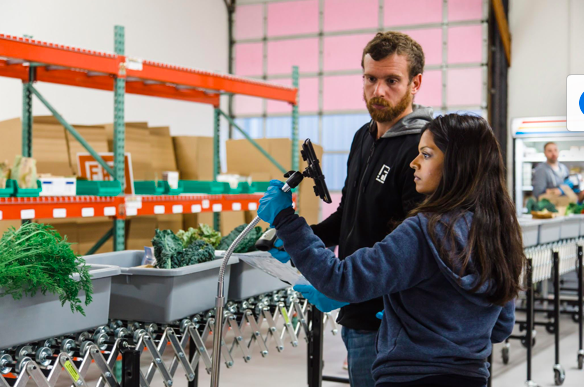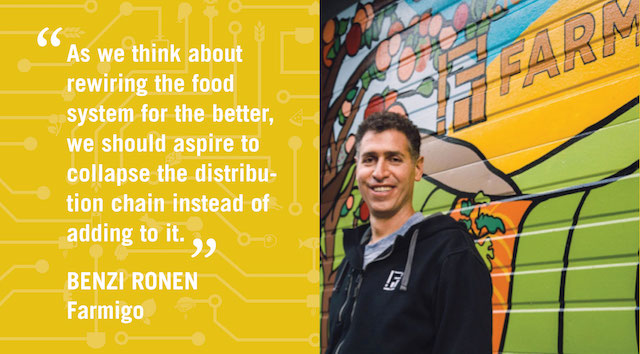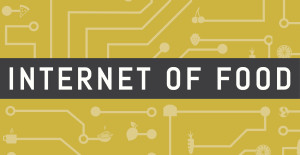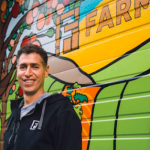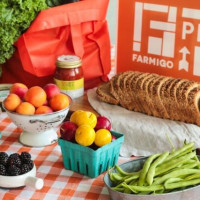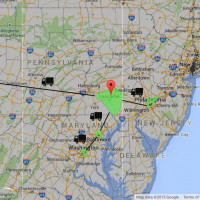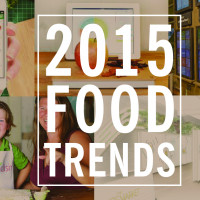Guest post Benzi Ronen, Founder of Farmigo. This post is part of our Internet of Food Series. The views expressed are are solely those of the author and do not reflect the views of Food+Tech Connect.
Food tech today is centered around convenience: door-to-door delivery of meal kits, take-out, and packaged foods. I believe we have the responsibility to go further and leverage technology to create a food experience that’s centered around quality, transparency, and the championing of diverse, independent local farmers and small businesses.
Food quality will become increasingly paramount
In the current supermarket distribution model, fresh food travels an average of 1,500 miles before getting to store shelves. Unsurprisingly, this has a serious impact on the quality of our food. Fruit and vegetables are typically harvested unripe, so that they don’t spoil by the time they get to supermarket aisles, which means they’re lacking in taste and nutrients. This model also creates a tremendous amount of waste: more than 1/3 of 400 million pounds of fresh food grown each year is thrown out.
As we think about rewiring the food system for the better, we should aspire to collapse the distribution chain instead of adding to it. The solution is to eliminate middlemen, not simply replace them — Community Supported Agriculture (CSAs) and tech companies like Farmigo are already applying just-in-time models to directly connect consumers to farm-fresh food, harvesting only what’s ordered to maximize freshness and reduce waste.
Transparency will become a requirement
Consumers are increasingly educated and empowered when it comes to their food choices. They demand to know where their food comes from, how it was produced — whether it’s Certified Organic, or from sustainable farms, or if it contains any GMOs. They’re advocating for greater transparency around what goes into their bodies and are holding the food industry accountable.
Category players who will succeed are those that stay ahead of this transparency curve and proactively look for producers with the same standards. At Farmigo, we help consumers understand where everything we sell comes from. The growing and harvesting practices of all items in our marketplace are detailed in our farmer and artisan biographies. It’s a way of reconnecting us with the origin of our food, so that as consumers, we fully understand what’s on our plate.
Companies that empower small local farmers and makers will have a tremendous advantage
Today, there are over 8,000 local farmer’s markets in the U.S., compared to about 5,000 in 2008. According to the U.S. Department of Agriculture, local food and beverage sales grew from $4.8 billion in 2007 to nearly $11 billion in 2015. The resurgence of demand for farmer’s markets and CSAs in the past few years have helped promote and foster more sustainable, smaller scale production that provides a viable alternative to the current industrial food system.
These small producers are making higher quality, more unique food than their behemoth counterparts, experimenting with heirloom species of produce, new cooking techniques, and sourcing local and seasonal ingredients in a way that can’t be replicated by slower-moving agribusiness giants. Yet they’re often the first to be squeezed out of the current food system by supermarkets exerting their buying power to drive prices down.
By bypassing the traditional distribution chain, Farmigo is able to provide far wider margins to farmers. Today, Farmigo gives its farmers and producers an average of 60 cents to the dollar, which is unheard of in an industry where 20 cents to the dollar is the standard.
This new economic model allows farmers to focus on quality and sustainability over pure cost cutting and yields extraordinary results in taste and nutrition — customers who experience this leap will have no interest in going back.
Companies that help small local farmers and makers reclaim their vital role in the food ecosystem will succeed in the “better food” revolution. Local food is poised to surpass both organic and natural as more and more consumers experience the benefits of supporting their local food system. It’s a responsible way to shop for better tasting food that lets customers minimize their carbon footprint and boost the local economy.
Providing greater access to a better food experience will win the ‘category war’
With demand for local food increasing rapidly, there is a true opportunity to offer better access to farmer’s market-quality food to more people. 53% of Americans live in the suburbs, and often don’t have the option to go to farmer’s market or buy food from local producers. While door-to-door grocery delivery companies are efficient for city dwellers (who are willing to pay a premium for convenience), most of the population doesn’t have access to or can’t afford these services.
We need more options like Farmigo, a business that’s optimized for accessing suburban neighborhoods to deliver the best possible food in a way that’s also convenient for families and sustainable for farmers. Our network of neighborhood pick-up sites, built on existing communities, enables us to provide farm-fresh food to people who might otherwise be in a local food desert.
We have to recreate the right food experience and re-introduce our lost food connections — bringing people closer to their food, their farmers, and each other. We need to build a better food system for everyone.
This is an extraordinary moment in the history of food in America. Today, technology has the ability to revolutionize the way we produce, distribute, and consume food. The companies that lead the path to a better food experience will not only prosper but also be the ones to redefine the category.
Internet of Food is an editorial series exploring how we might use technology, new business models and design to guarantee healthy, safe and sufficient food for everyone. Join the conversation between March 23 and April 29. Share your ideas in the comments, on Twitter using #internetoffood, Facebook, Instagram or LinkedIn, and follow the conversation by subscribing to our newsletter.
__________
Benzi Ronen is building a better, more sustainable food system.
Having worked in the technology industry for more than a decade, Benzi felt it was time for a change. He noticed a disconnect between where technology was taking us and where it could take us. In today’s food industry, advances are focused largely on minimizing the human element rather than supporting it. Reflecting on the tremendous potential power of technology to bring eaters and farmers together, he decided to focus his newest venture on transforming the suburban and urban food landscape, which tends to be ruthlessly efficient at the cost of both quality and sustainability. Farmigo is a company dedicated to building a better food system from the ground up, one that benefits both farmers and eaters.
Benzi earned his BA from Tel-Aviv University and MBA from the University of Michigan. After graduating, he spent a decade working with giants in the technology world – Microsoft, Netscape, SAP – and launched a successful entrepreneurial endeavor, Octago, a piece of software that optimized user experience. He lives in Brooklyn with his wife and their two children.

